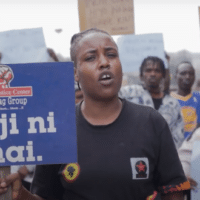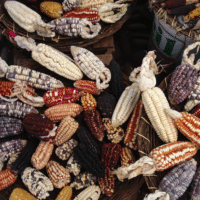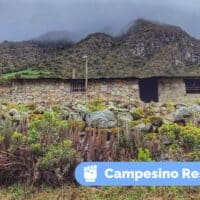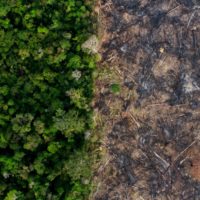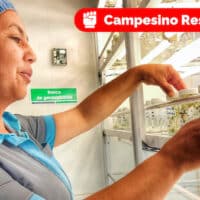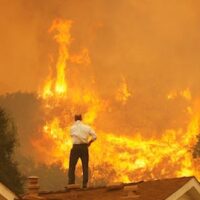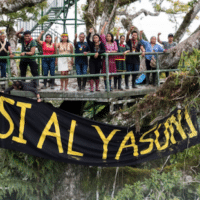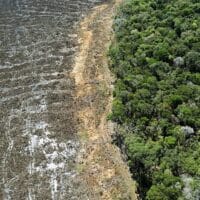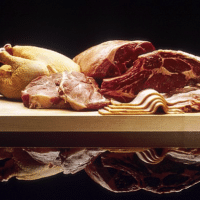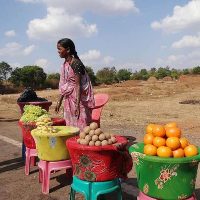-
Introduction to the Brazilian edition of ‘Facing the Anthropocene’
Important steps towards formally defining a new epoch in Earth System history.
-
When economists shut off your water
Access to water in Nairobi is horribly unequal. The World Bank, Nairobi Water Company, and development economists exploited this unjust context to treat poor Kenyans like guinea pigs.
-
Cop28: Elite politics won’t save the planet
If you’re a monarch, president or oil industry big shot the floor is yours at Cop28—there’s little to no input from those that actually feel the effects of climate change, warns RICHARD HEBBERT
-
COP28: The mirage that capitalism can solve its destruction
The COP28 summit taking place in Dubai, United Arab Emirates from 30 November to 12 December is a colossal illusion, a mirage in the desert.
-
ExxonMobil’s land grab
In 2014/15, the most sinister and predatory oil corporation in the world, ExxonMobil-an avowed enemy of Venezuela-discovered oil in land and sea of the disputed territory.
-
Averting a rendezvous with disaster
‘Cultural environmentalism’ alone will not solve the climate crisis, as, couched in the language of passivity, it avoids the urgent need for planned and targeted action, says ZOLTAN ZIGEDY.
-
‘1 Million Members, 100 Million Trees: How Brazil’s Socialist Farmers Are Fighting Big Ag’
The one-million strong Landless Workers Movement (MST) is a backbone of the Brazilian left, famous for its mass actions and radical land occupations all across the Brazilian countryside.
-
New study finds overwhelming evidence of harms from fracking
A review of the scientific literature reveals enormous public health, environmental, and climate damage from fracking. Authors say that “no rules or regulations can make these practices safe.”
-
Canada’s steadfast support for Big Agriculture’s assault on Mexican biodiversity
Although Mexico has maintained a ban on genetically modified (GM) corn since the 1990s, the move by Mexican President Andres Manuel Luiz Obrador (AMLO) in 2020 to eventually ban the import of GM corn in order to promote domestic cultivation of native varieties has threatened to spark a trade war with the United States.
-
Growing native potatoes in synergy with the land and its people
Campesinos high up in the beautiful Andean valley of Gavidia are working to preserve the native potato and the way of life that goes with it.
-
Talking shit
What links Karl Marx, William S. Burroughs, Dalit struggles in India and the Yetties’ famous Muckspreader Song? Ed Emery writes on the centrality of excrement, both metaphorical and literal, to the modern world.
-
Destroying forests for profits: India
THE Modi government, ever solicitous of corporate interests, has launched a plan whereby real estate developers and other corporates will be allowed to destroy large swathes of India’s forest cover for starting projects that rake in profits. It is amending the Forest Conservation Act to remove those forest patches that are not deemed as such by the government from protection under the Act.
-
Campesinos as Scientists: PROINPA Combats seed dependency
PROINPA is a grassroots campesino organization promoting food sovereignty, endogenous seed production, and an agroecological transition.
-
Study finds human-driven mass extinction is eliminating entire branches of the tree of life
The passenger pigeon. The Tasmanian tiger. The Baiji, or Yangtze river dolphin. These rank among the best-known recent victims of what many scientists have declared the sixth mass extinction, as human actions are wiping out vertebrate animal species hundreds of times faster than they would otherwise disappear.
-
The Federal Government is evolving on marijuana-but not fast enough
We shouldn’t treat cannabis like heroin. But we shouldn’t treat it like ketamine either, as a federal agency now recommends.
-
We’re rearranging the deck chairs on the Titanic: don’t ask me to help out
Highlighting the climate crisis is not ‘alarmism’, as critics say. Big Business wants an exclusive focus on climate because it downplays the true reasons for alarm.
-
Ecuador just showed the world what it means to take climate change seriously
It is long past time we end our mad rush to burn the planet to the ground.
-
Brazil stopped deforestation in the Amazon, but ‘the point of no return’ is still close
In 40 years, Amazon rainforest lost an area equivalent to France; at this rate, catastrophe is imminent, say scientists.
-
Our food system is the bullseye for solving the World’s climate challenges
The industrialized food system is a major source of greenhouse gas emissions, but it is not a major topic at climate talks.
-
Shooting the messenger: Adverse health trends revealed in the NFHS (5) 2019-2021
Economists have put forward all kinds of fallacious arguments to justify the prolonged fall in per capita food spending, and hence in nutritional intake, in India, such as mechanisation leading to lower energy needs, change in the age structure of the population, change in tastes and so on.


